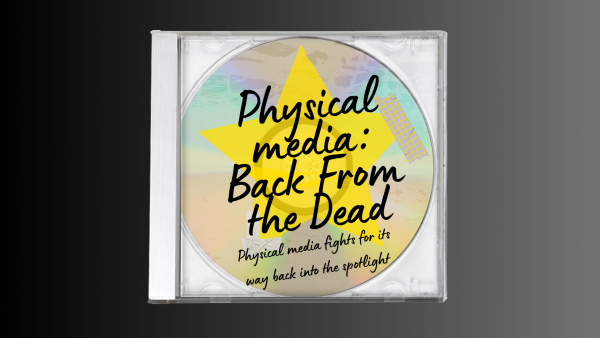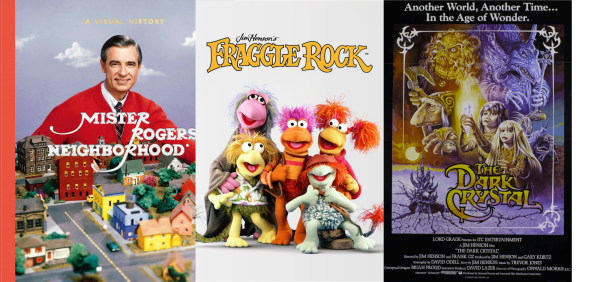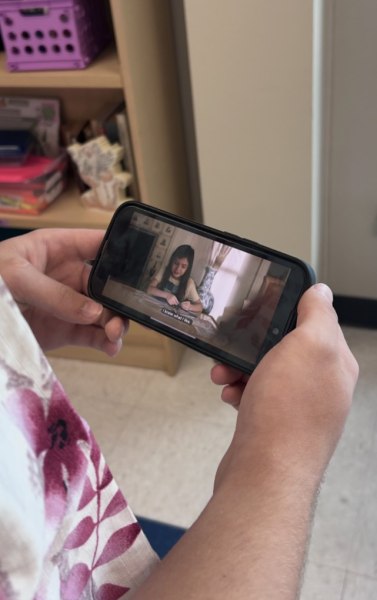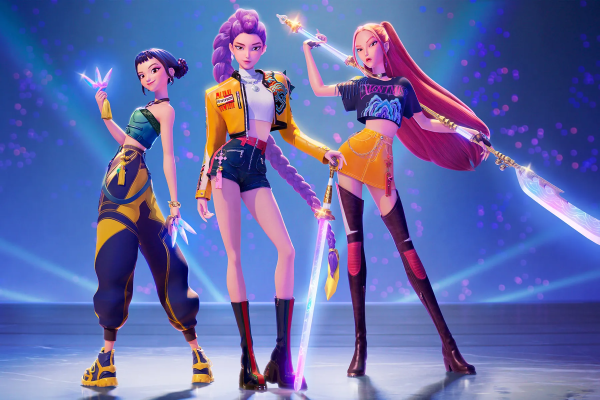Wednesday: Camp, cringe, and engagement
My initial aversion to watching Wednesday was personal; getting invested in TV is emotionally tiring for me. My continued avoidance of the series was external; the show was incredibly popular and so I assumed it couldn’t live up to the high expectations and praise heaped upon it.
However, several months after its release, Wednesday lost some of its intimidating qualities. The more time passed since its debut, the more criticism of the series arose, and the less hesitant I was to watch it and have a dissenting opinion.
Wednesday is a complicated show for me because of its ability to defy classification. The series itself does not fit into one particular genre, and similarly I find myself conflicted about various elements of the show. The same parts I disliked were the parts that engaged me most and made me want to continue watching. The show is compulsively bingeable and easy for the audience to get sucked into it.
A modern adaptation of the Addams family, Wednesday follows the journey of its title character (Jenna Ortega) whose parents, Morticia (Catherine Zeta-Jone) and Gomez (Luis Guzmán), send her to the Nevermore boarding school after a series of expulsions from normal high schools. Nevermore should serve as a safe-haven for Wednesday, as the school is designed for those who are ‘outcasts’ from normal society and specifically is for students with magical powers. While Wednesday initially plots to escape Nevermore, a series of murders involving students at the school and the surrounding town of Jericho interest her, and she decides to stay in order to investigate.

Wednesday is a show unafraid to take creative and narrative risks. The choice to use the Addams family story as a framing device for a teen mystery series is unexpected, the commitment to contrasting visuals is stark, and the show is always riding the line between intense seriousness and inane fantasy.
It’s nice to see a show populated by sirens, wizards, werewolves, and other fantastical creatures that doesn’t feel the need to be gritty or ‘realistic.’ In the show’s most effective character and story moments, it embraces this realistic detachment and presents itself as an escapist fantasy, rather than a plot-intensive mystery.
There’s comfort to be found in a show that’s presentation of good/evil, accepted/rejected, right/wrong is dichotomous and easy to differentiate. Wednesday doesn’t ask the audience to question their perception of society, nor does it push them to consider the power dynamics present within the show. The town of Jericho is an old pilgrim town, but references to colonialism are either treated with humor or placated with promises of good pilgrims who lived in peace with the Native American communities. Similarly, the ostracization the students of Nevermore face is never discussed in-depth, and even the terms used: ‘outcasts’ and ‘normies’ are childish enough to be funny rather than upsetting.
However, despite the fantasy world the show exists within, much of the delivery is serious. Even while the production of the show, the script, and even the character archetypes poke fun at the characters themselves, much of the delivery is serious.
Consequently, the tone of Wednesday is confused. Gory, tense scenes are followed by random character hijinks. Heavy story beats are communicated abruptly, and then glossed over until they become relevant again. The characters’ relationships change quickly and with little progression, leading to jarring conversations that exist to create narrative drama rather than to develop the people involved. The show suffers from the same identity crisis as its protagonist– unsure whether to fully lean into the dark or present a lighter side.
Some of these problems can be attributed to the characters’ ages. Shows for teenagers are written by adults, and thus suffer from disconnect. What adults envision teenagers saying or doing is never an accurate picture of what teen culture and relationships look like. In attempting to write a character like Wednesday, who is supposed to revile other teenagers, the adult writers show their lack of understanding and personal dislike for the actions of their teen characters. Wednesday’s friend, Enid (Emma Myers), is criticized for liking social media and chasing after boys, Wednesday’s rival, Bianca (played by Joy Sunday), is portrayed as being appearance obsessed and vain, and most of the side characters are treated by the story as being foolish or less intelligent than Wednesday. Consequently, Wednesday’s centering in the narrative seems more like a way to look down on the other characters than a way to explore the psyche of an iconic yet one-note character.
However, these flaws, whether intentional or not, are ultimately what give the series its charm. In the midst of the painful-to-watch dialogue or ridiculous acting, I found myself talking at the screen and engaging with the show. Ultimately, it doesn’t matter if I interacted with the show in a positive or negative way, the fact that the show was engaging enough to prompt these conversations is what matters. Seeing the runaway success of the series upon its debut, it’s no surprise the series was renewed, and all I can hope is that the show discovers the core of its own story in order to capitalize on its potential.
7/10 would be along for the ride again
Further Breakdown:
Writing Quality: 7/10 Enjoyability: 8/10
Pace: 7/10 Visual elements: 8/10
Plot development: 7/10 Insightfulness: 6/10
Characters: 7/10






